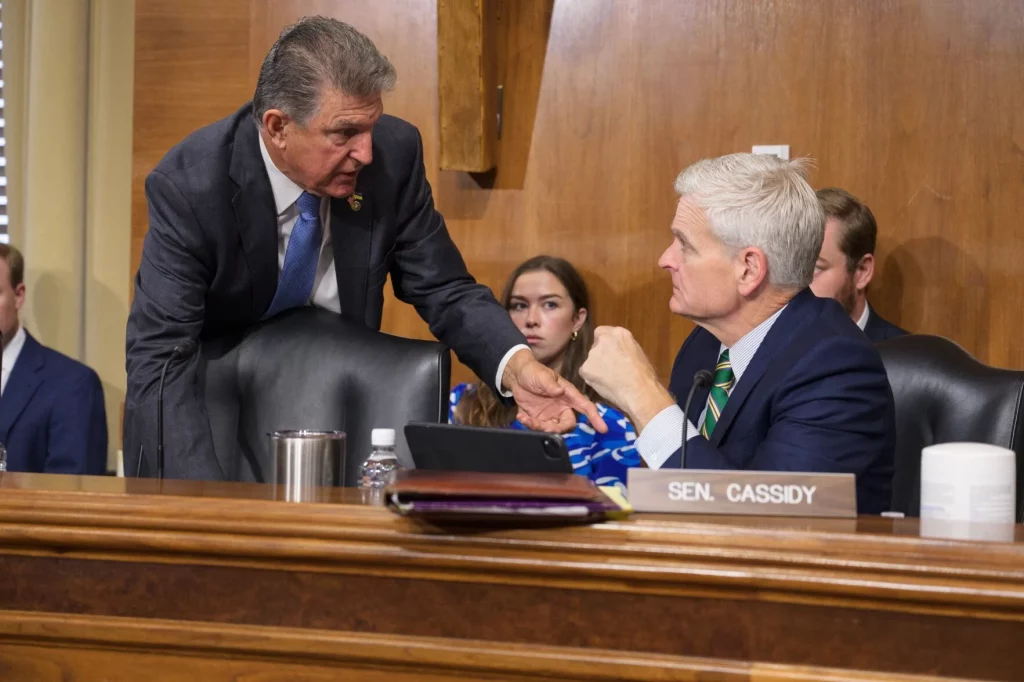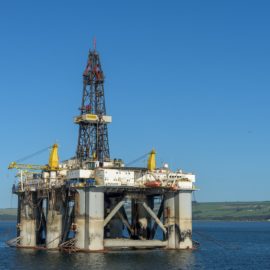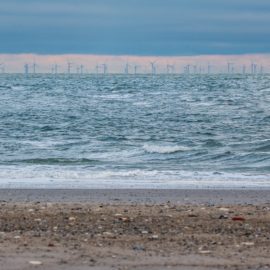
Provided by the U.S. Senate
Bipartisanship in action but will it help?
U.S. Sen. Bill Cassidy once again will attempt to wrest more money from the federal government for producing oil and gas in the waters offshore of Louisiana and other states. Cassidy said Tuesday he will file on Thursday a new version of Reinvesting In Shoreline Economies and Ecosystems Act, called RISEE, for Congress to consider over the next two years. “It’s going to be a priority in this Congress,” Cassidy, R-Baton Rouge, said during a press conference.
nola.Com
The initial bill never got out of committee so it dies with the new congress.
Last year a bipartisan version of RISEE cleared a Senate committee. RISEE never got a floor vote because of a backlog of legislation. Because the bill would have increased state general fund revenues by roughly 20% annually, Louisiana elected officials from village aldermen to parish police jurors to the governor pressed to get RISEE passed without going through the regular procedures and to do so before the 117th Congress completed its business Dec. 31 making all pending legislation moot. The effort failed and now Louisiana’s congressional delegation has to start from scratch with a new bill for the 118th Congress that began Jan. 3.
There was an effort to put in anoth bill but it did not make it.
Proponents in December tried to add the RISEE language onto the last-minute omnibus act that authorizes federal agencies to spend money. The two top leaders in the Senate and the two top leaders in the House negotiate and decide behind closed doors which of the unpassed bills are attached to the omnibus, which receives a single take-it-or-leave-it vote, usually without debate. At that time, Senate Majority Leader Chuck Schumer, D-N.Y., and Minority Leader Sen. Mitch McConnell, R-Kentucky, and the two top House leaders, House Speaker Nancy Pelosi, D-Calif., and House Minority Leader Kevin McCarthy, R-Calif., didn’t explain their decision to exclude RISEE. Those close to the process suspect that questions about how RISEE would be paid for as well as opposition, primarily in the House, were responsible. “Unfortunately, bad politics got in the way,” Cassidy said.
Work on the new bill started even before this congress was sworn in.
Work began on the new bill even before the 118th Congress organized itself. Final wording is still being hammered out, but in broad strokes this new version of RISEE will pretty much duplicate the version approved in committee last year, Cassidy said. The key difference will be a provision that describes how to pay for the higher shares that states would get from federal production. Under RISEE about $14 billion, according to the Congressional Budget Office, would be diverted to the states rather than deposited in the national treasury. The money comes from companies paying royalties and fees. “We have to have something that will be satisfactory for the people in the House,” Cassidy said, adding that the exact “pay for” mechanism hasn’t been discussed and agreed to by House members and their staffs. “We will work to have a ‘pay for’ that removes concerns of the budgetary impact,” Cassidy said.
RISEE changes the way the offshore money is distributed.
RISEE basically changes the framework detailed in the 2006 Gulf of Mexico Energy Security Act. Under GOMESA, the federal government returns 37.5% of offshore energy revenue to Louisiana, Texas, Mississippi and Alabama, which is subject to a combined cap of about $375 million per year. All monies above the cap are kept by the federal government. RISEE would lift that cap and expand federal revenue sharing to 38 coastal states, including those lining the Great Lakes. Louisiana’s 2020 cut under GOMESA was $155.7 million, which was split between state and parish governments. A University of Louisiana at Lafayette analysis estimates that without a cap, Louisiana could pull down about $1.9 billion, depending on the circumstances.
Some conservatives did not like Cassidy’s partner as he wanted climate change added to the bill.
Some conservative House members also had troubles with Cassidy’s bipartisan partner, U.S. Sen. Sheldon Whitehouse, D-R.I. Whitehouse pushes for climate change legislation, which many Republicans downplay, and is close to those whom Cassidy calls “liberal environmentalists.” “He’s absolutely the best person,” Cassidy said. “We have to have something that is bipartisan to pass the Senate. He is able, as a coastal state senator, to speak with authority. … This is a narrow issue that Sheldon Whitehouse and I can collaborate on even though we’re going to disagree on many other things.” House members likely will introduce similar legislation and start the process from the other side of the Capitol. Last year House Majority Leader Steve Scalise, R-Jefferson, and U.S. Rep. Troy Carter, D-New Orleans, sponsored the Budgeting for Renewable Electrical Energy Zone Earnings.
Different name but the same idea.
Like RISEE, BREEZE removed the cap to allow the states to receive their entire share of the revenues. Unlike RISEE, BREEZE increased the percentage share from 37.5% to half the royalties and fees collected. Bipartisan agreement in the Senate hinged on not increasing the percentage, just the cap. Carter said Tuesday that he and Scalise would refile BREEZE for consideration by the new Congress. But he also favors and would push for RISEE too. “I appreciate RISEE and where it has been,” Carter said. “But in these legislative circles it’s good to have more than one bite at the apple.”
Cassidy and Carter get more mention. Scalise is next and then Graves. Where are the rest of them?



